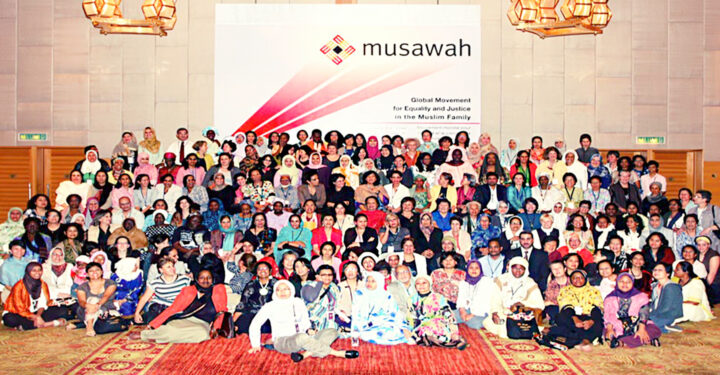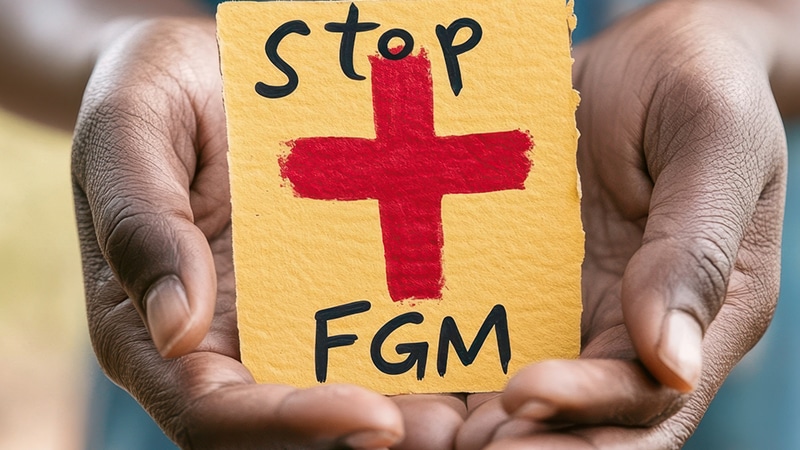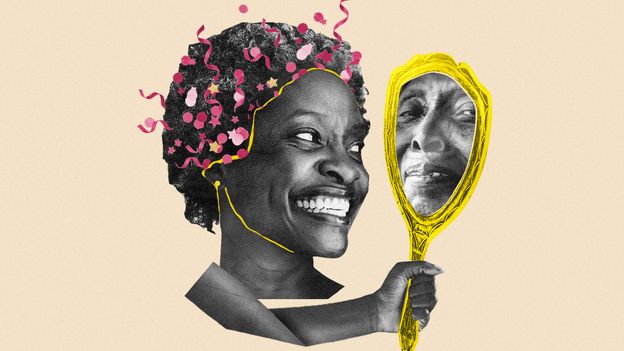Islam, Feminism, and Family Laws: A Conversation with Musawah – Arab Reform Initiative

Report on the Musawah Movement’s Contribution to Sustainable Development Goals through Islamic Feminist Advocacy
This report outlines the mission, strategies, and impact of Musawah, a global movement advocating for gender equality and justice within Muslim legal frameworks. The organization’s work is analyzed through the lens of its significant contributions to the United Nations Sustainable Development Goals (SDGs), particularly SDG 5 (Gender Equality), SDG 10 (Reduced Inequalities), and SDG 16 (Peace, Justice and Strong Institutions).
Organizational Mission and Strategic Framework
Musawah, meaning ‘Equality’ in Arabic, is a global movement dedicated to reforming discriminatory family laws and practices justified by patriarchal interpretations of Islam. By integrating a rights-based perspective with Islamic scholarship, the movement directly addresses critical targets within the 2030 Agenda for Sustainable Development.
Origins and Vision
The movement was initiated by the Malaysian women’s rights group ‘Sisters in Islam’ (SIS) after identifying common patterns of gender discrimination in Muslim family laws across diverse countries. The founding vision was to create a sustainable global movement to challenge the patriarchal hegemony over religious interpretation that acts as a barrier to achieving gender equality. Launched in 2009, Musawah’s core principle is that equality within the family is foundational to equality in society, aligning with the aims of SDG 5 to eliminate all forms of discrimination against women and girls in both public and private spheres.
Organizational Structure and Partnerships
Musawah operates as a flexible and evolving global network, coordinated by a central Secretariat. This decentralized structure facilitates cross-regional collaboration and ensures that its initiatives are locally grounded and responsive to the needs of civil society partners. This model embodies the spirit of SDG 17 (Partnerships for the Goals) by building effective collaborations with a diverse range of stakeholders.
- Key Partners: The movement collaborates with community leaders, local women’s rights organizations, activists, academics, jurists, and religious authorities across the Middle East, Asia, and Africa.
- Approach: Partnerships are participatory, ensuring that Musawah’s support is tailored, relevant, and strengthens collective action for legal and social reform.
Methodology for Influencing Systemic Change and Policy Reform
Musawah employs a multi-pronged strategy that combines knowledge production, capacity building, and targeted advocacy to challenge discriminatory laws and promote just alternatives. This approach is instrumental in advancing SDG 16 by working to build effective, accountable, and inclusive institutions at all levels.
Core Activities and Tools
The organization utilizes a comprehensive toolkit to achieve its objectives, directly supporting the implementation of non-discriminatory laws and policies as called for in SDG 16.b.
- Knowledge Building: Musawah produces a robust body of feminist scholarship that reinterprets Islamic teachings from a rights-based perspective. This research provides the evidence and argumentation necessary for legal reform efforts.
- Capacity Building: Through transformative learning programs like the Islam and Gender Equality and Justice (I-nGEJ) course, Musawah equips activists with the knowledge and skills to advocate for change in their local contexts.
- Public Discourse: The movement engages with artists, media, and influencers to popularize progressive narratives on women’s rights in Islam, challenging conservative dominance over public and religious discourse.
- International Advocacy: Musawah submits thematic shadow reports to the CEDAW Committee, specifically targeting reservations to Article 16 (marriage and family relations). This work holds governments accountable to their international obligations under SDG 5.1 and challenges the use of religion to justify discrimination.
Influencing National Legal Frameworks
As a global entity, Musawah supports national-level reform by empowering local partners. The organization provides knowledge, tools, and mentorship to amplify local campaigns. By collaborating on CEDAW reports, Musawah ensures local voices are heard at the international level, generating recommendations that advocates can use to pressure their governments for reforms that align with SDG 5 and SDG 16.
Knowledge Production as a Catalyst for Achieving SDG 5
Musawah’s core strategy is to reclaim the space of religious knowledge production, arguing that this is essential for creating sustainable legal and social change. By inserting women’s lived realities and concerns into religious discourse, the movement aims to dismantle the intellectual foundations of gender inequality in Muslim family laws.
Deconstructing Patriarchal Legal Concepts
A primary focus has been on re-examining the concepts of qiwamah (men’s authority over women) and wilayah (male guardianship), which have been used to institutionalize a patriarchal family model and justify discriminatory laws regarding divorce, polygamy, and inheritance. Musawah’s research demonstrates that:
- These concepts are juristic constructs, not immutable Qur’anic mandates.
- Laws based on these constructs are disconnected from the Qur’anic ethical vision and contemporary realities.
- Alternative interpretations that promote justice and equality are both possible and necessary.
This scholarly work provides policymakers and activists with the arguments needed to reform legal systems, thereby contributing directly to the creation of just and equitable institutions (SDG 16) and the promotion of gender equality (SDG 5).
Challenges, Priorities, and the Path to 2030
Musawah operates in a global context of increasing regression on women’s rights and the rise of anti-rights movements. The gap between legal provisions and their implementation on the ground remains a significant challenge, threatening progress towards the SDGs.
Future Priorities and Holistic Approach
To counter these challenges, Musawah’s priorities for the next decade focus on a holistic and participatory approach. The movement recognizes that legal reform alone is insufficient and must be complemented by efforts to address underlying socio-economic and cultural factors that perpetuate gender inequality, such as poverty and lack of education. This integrated strategy contributes to a broader set of goals, including SDG 1 (No Poverty), SDG 4 (Quality Education), and SDG 10 (Reduced Inequalities).
By building inclusive coalitions and continuing to engage with religious frameworks, Musawah’s work is critical for ensuring that the transformative change required to achieve the 2030 Agenda is both sustainable and deeply rooted in local contexts.
Analysis of Sustainable Development Goals in the Article
1. Which SDGs are addressed or connected to the issues highlighted in the article?
The article on the Musawah movement addresses several Sustainable Development Goals (SDGs) through its focus on reforming discriminatory family laws, promoting gender equality, and empowering women in Muslim contexts. The primary SDGs connected to the issues are:
- SDG 5: Gender Equality – This is the central theme of the article. Musawah’s entire mission is to “fight gender injustices and promote equality, justice, and compassion in laws, norms and social practices” for women. The article details the struggle against patriarchal interpretations of religion that lead to discriminatory family laws.
- SDG 16: Peace, Justice and Strong Institutions – The article highlights the need for legal and institutional reform to ensure justice for women. Musawah’s work in challenging “unjust laws and structures,” advocating for the “reform of family laws and practices,” and using international mechanisms like CEDAW to pressure governments relates directly to building accountable and just institutions.
- SDG 4: Quality Education – Musawah’s strategy heavily relies on knowledge production and capacity building. The article describes how the movement builds “a solid body of feminist scholarship,” offers “transformative learning experiences on Islam and gender,” and uses its flagship “Islam and Gender Equality and Justice (I-nGEJ) course” to empower advocates. This connects to providing inclusive and equitable education for promoting human rights and gender equality.
- SDG 17: Partnerships for the Goals – The article emphasizes Musawah’s collaborative approach. It mentions that the movement works with a wide range of partners, including “local women’s rights organizations and activists,” “academics, jurists, and religious authorities,” and builds “stronger coalitions and solidarity among women’s rights groups” to achieve its objectives.
2. What specific targets under those SDGs can be identified based on the article’s content?
Based on the activities and goals of Musawah described in the article, several specific SDG targets can be identified:
-
SDG 5: Gender Equality
- Target 5.1: End all forms of discrimination against all women and girls everywhere. Musawah directly addresses this by working to “end the use of Islam to justify legal and social discrimination against women, especially in the area of religious-based family laws.”
- Target 5.5: Ensure women’s full and effective participation and equal opportunities for leadership at all levels of decision-making. The movement aims to “insert women’s concerns and voices into the production of religious knowledge and legal reform,” thereby empowering them to participate in shaping the laws that affect their lives.
- Target 5.c: Adopt and strengthen sound policies and enforceable legislation for the promotion of gender equality. Musawah’s core work is advocating for the “reform of discriminatory family laws and practices” and providing “recommendations for reform of discriminatory legal systems” to support policy and legal changes at the national level.
-
SDG 16: Peace, Justice and Strong Institutions
- Target 16.3: Promote the rule of law at the national and international levels and ensure equal access to justice for all. The article notes that existing family laws are “reinforcing inequality and limiting access to justice” for women. Musawah’s efforts to reform these laws are aimed at ensuring equal justice.
- Target 16.b: Promote and enforce non-discriminatory laws and policies for sustainable development. This target is central to Musawah’s mission, as it directly campaigns against “discriminatory family laws and practices justified in the name of Islam” and works to replace them with non-discriminatory alternatives.
-
SDG 4: Quality Education
- Target 4.7: Ensure that all learners acquire the knowledge and skills needed to promote sustainable development, including, among others, through education for… human rights, gender equality and promotion of a culture of peace and non-violence. Musawah’s “capacity-building work” and its I-nGEJ course are explicitly designed to “build the capacity and knowledge of activists to create change towards equality and justice in Muslim family laws and practices.”
-
SDG 17: Partnerships for the Goals
- Target 17.17: Encourage and promote effective public, public-private and civil society partnerships. The article states that “effective social change in family law reform requires the active collaboration of diverse actors – religious leaders, secular and rights-based advocates, feminists, state institutions, and community members – working together toward common goals.” This perfectly aligns with the target.
3. Are there any indicators mentioned or implied in the article that can be used to measure progress towards the identified targets?
The article does not mention official SDG indicators, but it implies several ways to measure progress towards the identified targets:
-
For SDG 5 (Gender Equality):
- Legal Frameworks for Non-Discrimination: Progress can be measured by the number of countries that reform their family laws and personal status codes to remove discriminatory provisions. The article’s focus on challenging laws based on concepts like qiwamah (men’s authority over women) implies that the removal of such concepts from legal texts is a key indicator.
- Monitoring International Obligations: The submission of “thematic shadow reports on Article 16 of the Convention on the Elimination of All Forms of Discrimination Against Women (CEDAW)” is a direct monitoring activity. The “Concluding Observations and Recommendations by the CEDAW Committee” serve as an indicator of international pressure and a tool for national advocacy.
-
For SDG 16 (Peace, Justice and Strong Institutions):
- Existence of Non-Discriminatory Laws: A primary indicator is the status of national legal frameworks. The article mentions setbacks like the “Iraqi Personal Status Code” and positive developments in “Morocco,” indicating that the adoption, rollback, or implementation of non-discriminatory laws is a measurable outcome.
-
For SDG 4 (Quality Education):
- Capacity of Advocates: The impact of Musawah’s educational initiatives can be measured by the number of advocates trained through its I-nGEJ course and their subsequent success. The article notes that “Participants have used our trainings to effectively pursue legal and social changes and create impact in their communities,” suggesting that the actions taken by trainees are an indicator of success.
-
For SDG 17 (Partnerships for the Goals):
- Formation of Coalitions: The number and effectiveness of coalitions and partnerships formed can serve as an indicator. The article highlights the need for “stronger coalitions and solidarity among women’s rights groups” and collaboration with “diverse actors,” implying that the strength of these networks is a measure of progress.
4. Table of SDGs, Targets, and Indicators
| SDGs | Targets | Indicators (as implied in the article) |
|---|---|---|
| SDG 5: Gender Equality |
|
|
| SDG 16: Peace, Justice and Strong Institutions |
|
|
| SDG 4: Quality Education |
|
|
| SDG 17: Partnerships for the Goals |
|
|
Source: arab-reform.net
What is Your Reaction?
 Like
0
Like
0
 Dislike
0
Dislike
0
 Love
0
Love
0
 Funny
0
Funny
0
 Angry
0
Angry
0
 Sad
0
Sad
0
 Wow
0
Wow
0















































































